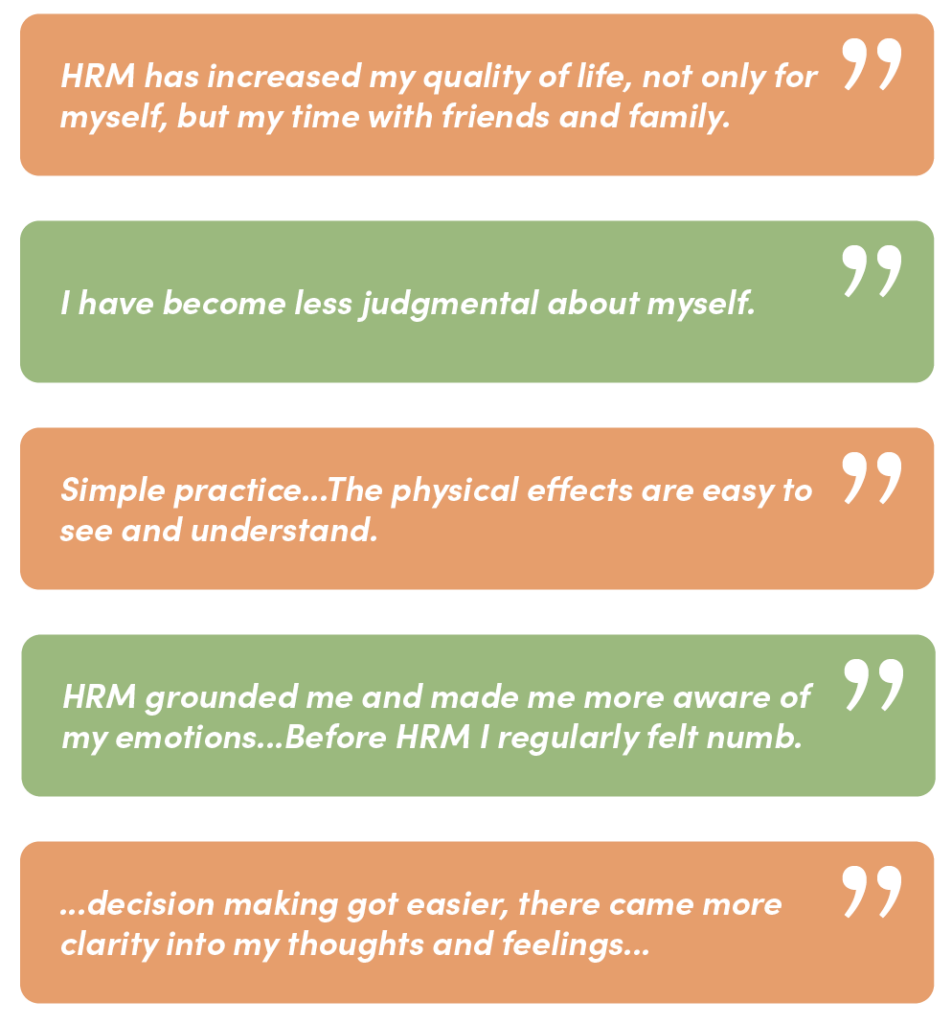Heart Rhythm Meditation Science
Published HRM Research

BRIDGING ANCIENT WISDOM & MODERN SCIENCE
iamHeart is committed to the study and research of the physical effects of Heart Rhythm Meditation (HRM) on the body.
RESEARCH HIGHLIGHTS
By combining traditional heart-centered practices with modern research, iamHeart explores how HRM influences heart health, the nervous system and overall well-being, even for beginners.

Tisdell, E.J., Lukic, B., Banerjee, R. et al. The Effects of Heart Rhythm Meditation on Vagal Tone and Well-being: A Mixed Methods Research Study. Appl Psychophysiol Biofeedback 49, 439–455 (2024). https://doi.org/10.1007/s10484-024-09639-0
Heart Rate Variability (HRV) measures of vagal tone improved with amount of meditation time.
Practicing Heart Rhythm Meditation for over 10 minutes per day improves well-being in novice meditators.
Heart Rhythm Meditation has positive effects on stress, well-being, and emotional regulation
Heart Rate Variability is the amount of time between each heartbeat, and is used to measure Vagal Tone.
Vagal Tone indicates the performance of the vagus nerve, which is responsible for multiple organ functions, including digestion, breathing, and cardiovascular activity.
Check your HRV today with our FREE Breath & Heart App
Healthcare Worker Experience with HRM
Global Advances in Integrative Medicine and Health
STUDY TESTIMONIALS
Testimonials are provided anonymously by study participants.


